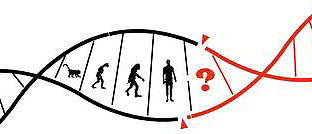Gattaca, the consensus on where to improve
The movie Gattaca has the topic that it is able for people to genetically influence their children. This way it is possible to prevent sickness and negative effects that the parents poses but do not want their children to poses them as well. The movie points out how natural born children and modified children differ and interact in society.
A student group presented this idea with an interaction part where students, paired in groups, had to think how different stakeholders would have their vision on this idea and what actions they would take. I was, with my group, representing the church, which I changed to religion to be more overarching. And as religion we decided to not be overly radical because this could lead to endless discussions with other stakeholders. But be rational with some clear points. This way we decided that genetically modification should only be used to cure and help people. The original hospitals where the church’s (or other religions) initiative to take care for the ill and lost souls. So why should the church not want to help children born with leukemia, or with Alzheimer running in the family? But it should only be implemented when it is affordable for everybody, so not that only the richest 1% could pay for it, because why should the elite top become even more elite, that is not something religion would approve. Also it should not be used to create the perfect child or the gender of the child. This could lead to unbalanced society which could possibly have serious negative future impacts.
After this we as religion (church) went out and got to discuss with other stakeholders, in this way all the different points of view where shared with other stakeholders. What I noticed was that in my group we had very similar points in what we wanted and what we definitely did not want and that was the prevention of the elite becoming even more elite.
Now came the most interesting part of the interaction. We as different stakeholders got six aspects on which we could genetically improve and 20 points we had to divide over these different aspects. These where:
- Increased IQ, for people with a lower than average IQ,
- Criminal behavior, preventing new generation to behave criminally,
- Cancer, prevent cancer,
- Social disorder, the social behavior in society,
- Depression and addiction, reducing these aspects in society,
- Neuro diseases, diseases as alzeheimer.
We decided to give 5 points to neuro diseases and criminal behavior and social disorder, this because neuro disease are very often genetically heritage and puts a heavy load on the family. Criminal behavior has a huge impact on society and conflicts with religion. 3 points to depression and addiction, we found this to be a mindset but does influence society. And 2 point to cancer, not to prevent this terrible disease but to reduce it, this because cancer is no genetic disease and is getting better curable
Interesting was that there where in total 3 points given to IQ, where 47 points where given to cancer.
This is because of two aspects. Cancer got a high emotional value, close ones we lost because of the disease and the anxiety of the disease, anyone can get the disease, and the fact that we as students believe that everybody has got their own talent. But is this rational thought or just because we do not want to do the “dirty jobs”. This is a harsh statement but we also need to realize that people with a lower IQ level want to be smarter. It would be very interesting to repeat this exercise on different levels in society. What are the outcomes and would this be possible solutions for future implementation where all stakeholders are represented?
